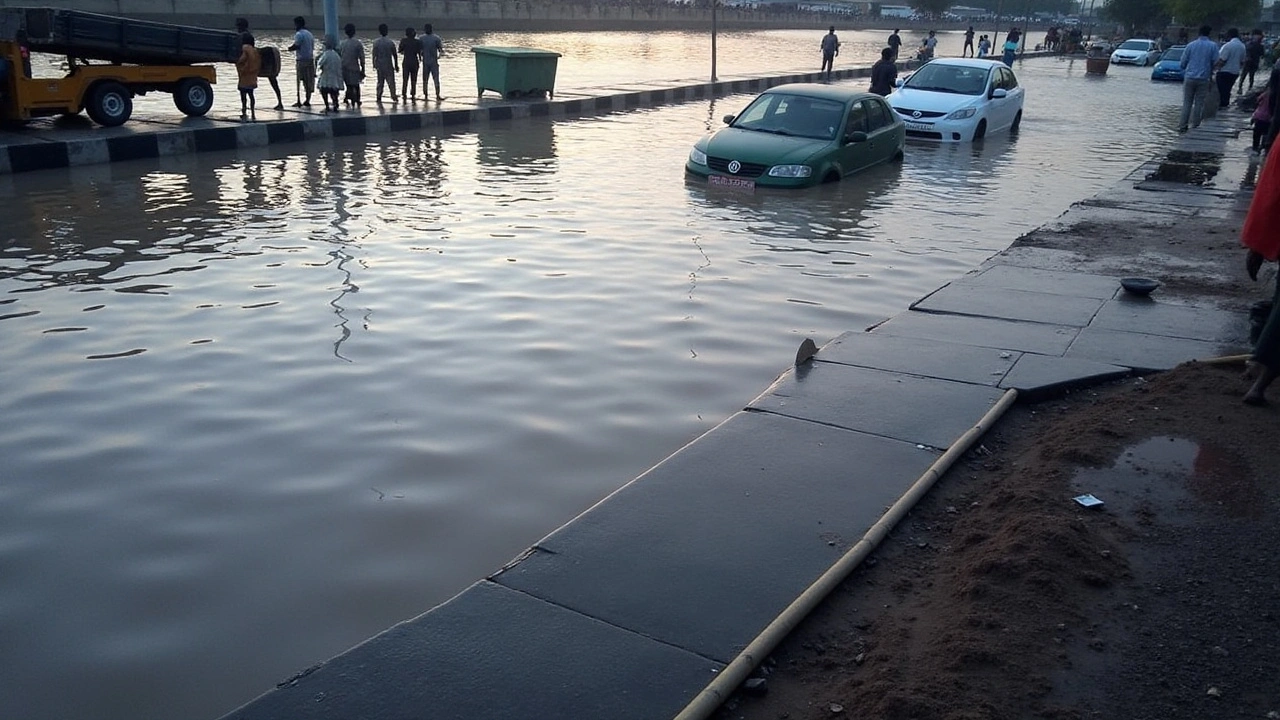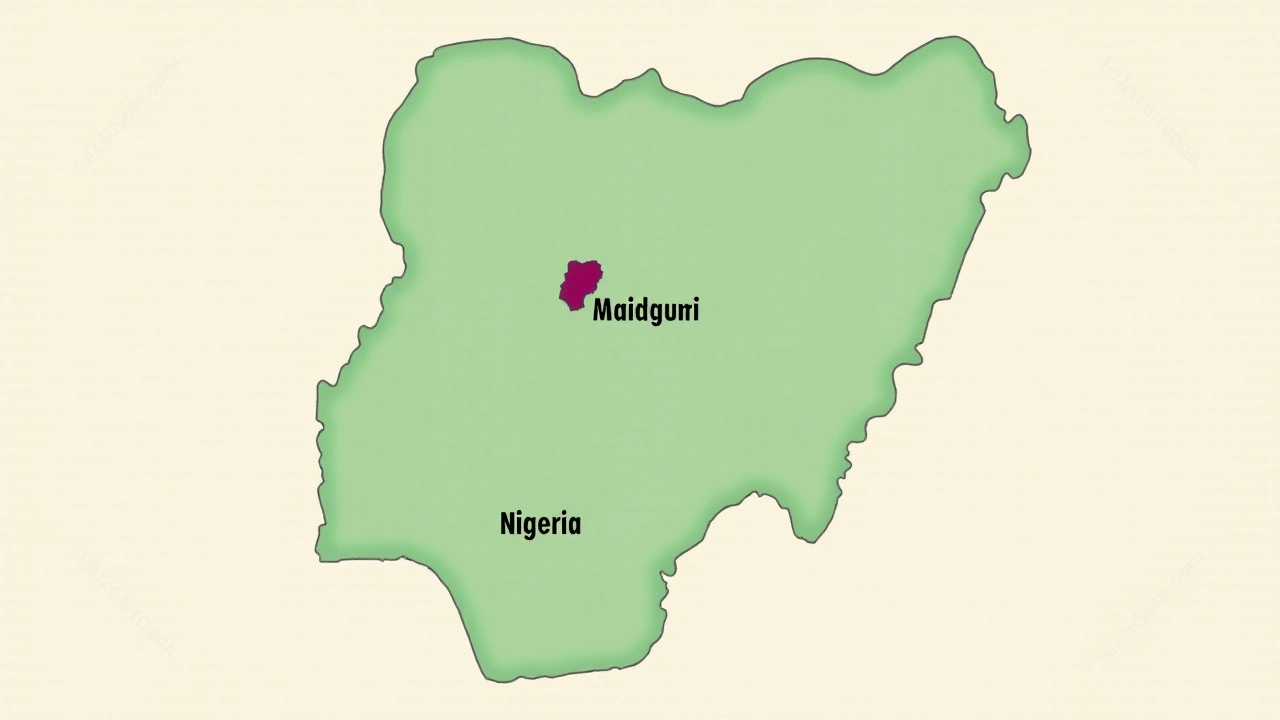Massive Flooding Engulfs Maiduguri: A Humanitarian Crisis Unfolds
Maiduguri, the bustling capital city of Borno state in northeastern Nigeria, has been hit by massive flooding, displacing thousands of residents and severely disrupting everyday life. This catastrophic incident, likened to the worst floods experienced in 1994, has affected at least five communities, leading to significant infrastructural damage and upending businesses, schools, and significant landmarks.
Affected Communities and Landmarks
Among the areas submerged by the deluge are notable landmarks such as the palace of the Shehu of Borno, the Lagos Bridge, the University of Maiduguri Teaching Hospital, the Central Mosque, the State Specialist Hospital, and Millionaires’ Quarters. The flooding has not spared even the Sanda Kyarimi Park Zoo, leading to the rather surreal sight of animals like ostriches, snakes, and crocodiles wandering or being washed into the streets. This has turned an already frightful situation into an unpredictable one, posing additional threats to the residents' safety.
Cause of the Flood
Initial reports suggest that the flooding might have been caused by the overflow of Alau Dam, a dam constructed for irrigation purposes and domestic water supply. The dam's breach has led to the overwhelming inundation of lower-lying areas, triggering this unexpected natural calamity.
The sheer force and swift onset of the flood have raised concerns regarding emergency preparedness and the effectiveness of existing infrastructure in mitigating such disasters. With climate change exacerbating extreme weather events, the current situation in Maiduguri underscores the urgent need for resilient and adaptive water management systems.
Urgent Government Response
The Borno State government has acted swiftly in response to this humanitarian crisis. To prevent further loss of life and ensure the safety of students, authorities have ordered the immediate closure of all schools in the affected regions. This measure, although disruptive, has become essential in light of the severe dangers posed by the waterlogged conditions.
In a bid to provide temporary shelter and basic amenities, the government has reopened the previously closed Bakassi Internally Displaced Persons (IDPs) camp in Maiduguri. This facility is expected to house the flood evacuees, offering them at least a modicum of safety and stability in these trying times.
International Aid and Local Efforts
The United Nations High Commissioner for Refugees (UNHCR) has been quick to respond to the crisis, appealing for more aid to support the affected communities. Teams from the UNHCR are already on the ground in Maiduguri, providing much-needed assistance and coordinating with local agencies to streamline relief operations. This international support is critical, given the scale of displacement and the immediate needs of thousands of residents.
Local efforts have also been significant, with various community groups and organizations mobilizing resources to deliver food, water, and medical supplies to those in need. Social media platforms have played a crucial role in these efforts, with residents using them to raise distress calls, coordinate rescue operations, and appeal for help. This grassroots mobilization highlights the resilience and solidarity within the local communities, even in the face of overwhelming adversity.
Long-Term Implications
While the immediate focus remains on providing relief and ensuring the safety of displaced residents, the long-term implications of this flood disaster cannot be overlooked. The extensive damage to infrastructure, including health facilities, schools, and religious sites, will require substantial rebuilding efforts. Businesses that have been disrupted might struggle to recover, impacting the local economy and livelihoods of numerous families.
Moreover, this event forces a critical examination of existing urban planning and water management systems. Ensuring such a catastrophe does not recur will necessitate robust investments in infrastructure, better emergency preparedness, and comprehensive strategies to address the challenges posed by climate change. Policymakers and civic planners need to prioritize these aspects to safeguard Maiduguri and other vulnerable regions from future disasters.

A Call for Support
The situation in Maiduguri serves as a stark reminder of our vulnerability to natural disasters and the pressing need for concerted efforts in disaster risk reduction. As authorities, aid organizations, and volunteers work tirelessly to manage the relief operations, there is an urgent call for support from both national and international communities. Contributions, whether in the form of financial aid, supplies, or expertise, can make a significant difference in the lives of those affected by this devastating flood.
Let this be a moment to bolster our commitment to building resilient communities. By learning from this crisis and taking proactive steps, we can better ensure the safety and well-being of all in the face of future adversities.





